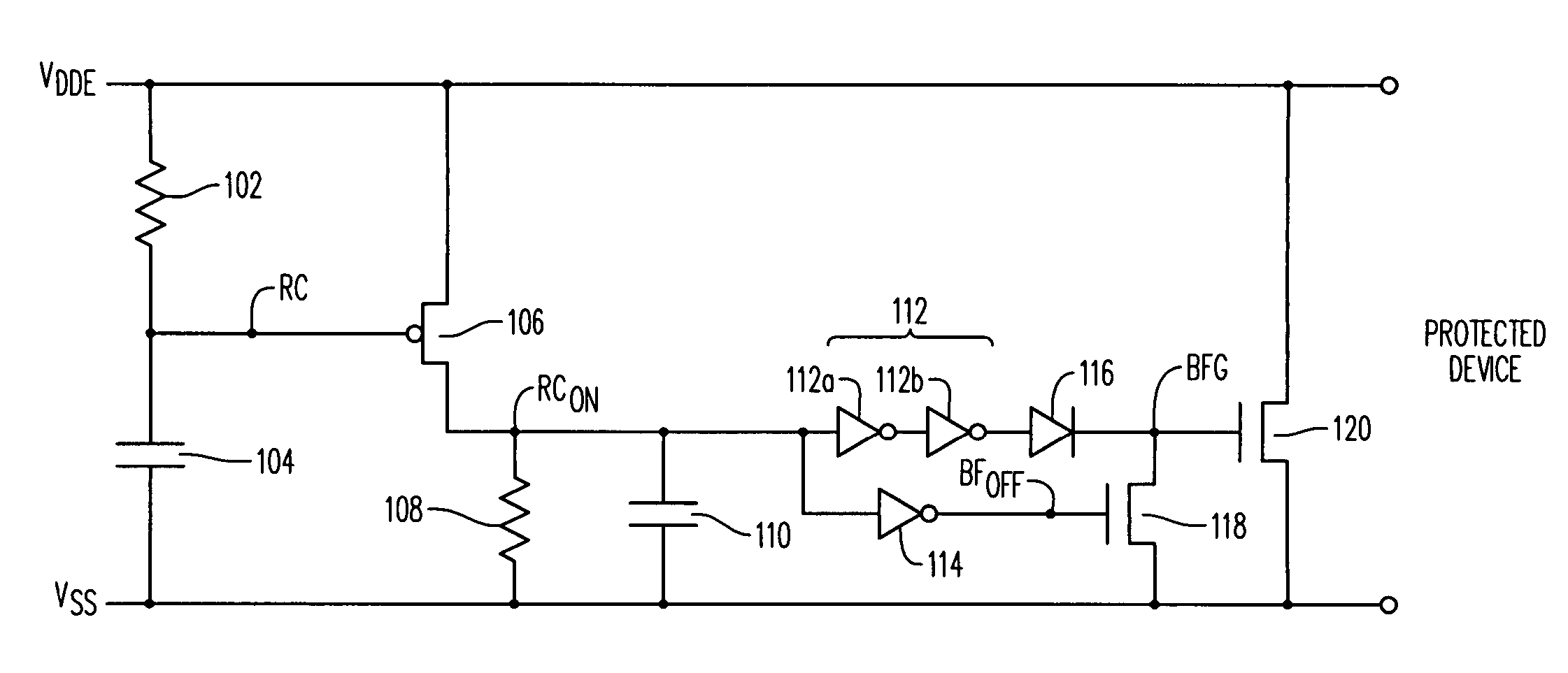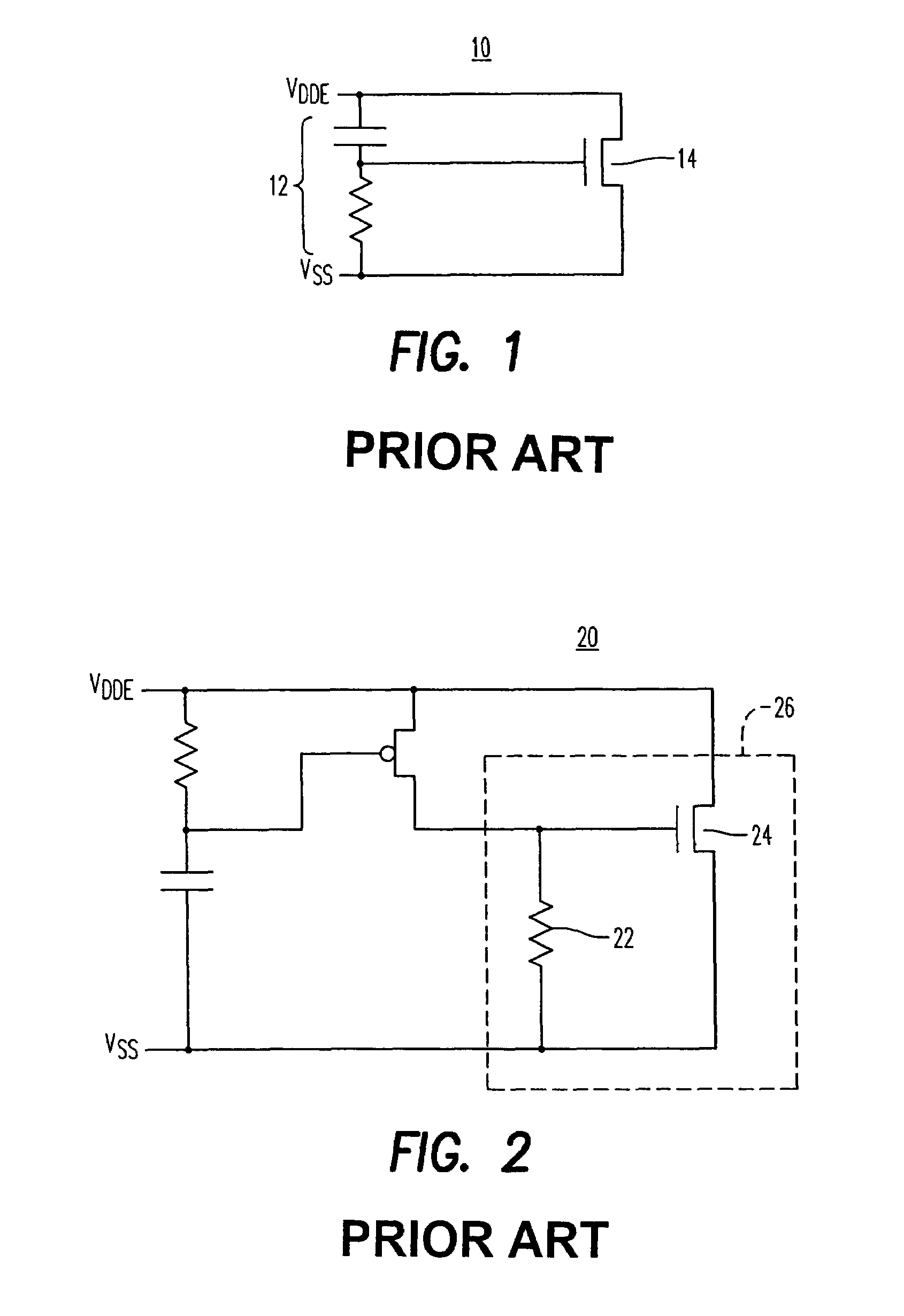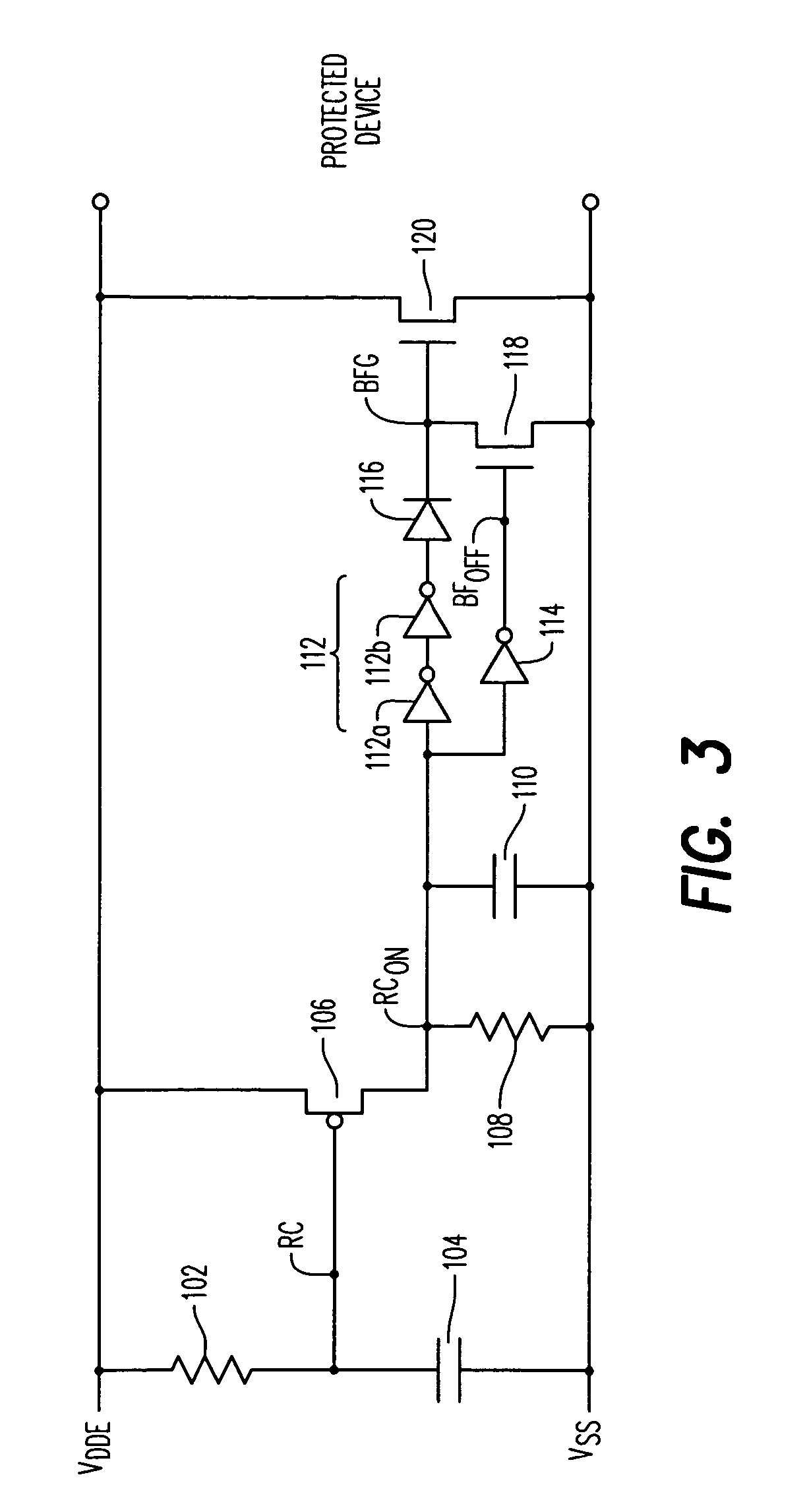Electrostatic discharge device with variable on time
a technology of electric discharge device and variable time, which is applied in the direction of emergency protective arrangements for limiting excess voltage/current, transformers, electrical appliances, etc., to achieve the effect of minimizing the effects of an initial esd event, enhancing protection against subsequent esd events, and reducing the effect of initial events
- Summary
- Abstract
- Description
- Claims
- Application Information
AI Technical Summary
Benefits of technology
Problems solved by technology
Method used
Image
Examples
Embodiment Construction
[0021]An exemplary electrostatic discharge protection device will now be described with reference to FIG. 3.
[0022]The exemplary electrostatic discharge protection device 100 for limiting the effects of an electrostatic discharge event comprises a first RC network comprising a first resistor 102 connected in series with a first capacitor 104. The first resistor is connected to the voltage rail VDDE and the first capacitor 104 is connected to the substrate voltage rail VSS. The gate terminal of a first transistor 106 is connected to a node RC between the first resistor 102 and the first capacitor 104. The source terminal of the first transistor 106 is connected to the input voltage rail VDDE. During normal conditions, e.g. prior to the onset of an ESD event, the first capacitor 104 holds the voltage at node RC to VSS, which is a low voltage, enabling the turn on of first transistor 106 when a voltage is applied to VDDE. In the illustrated embodiment, the first transistor 106 is a p-ch...
PUM
 Login to View More
Login to View More Abstract
Description
Claims
Application Information
 Login to View More
Login to View More - R&D
- Intellectual Property
- Life Sciences
- Materials
- Tech Scout
- Unparalleled Data Quality
- Higher Quality Content
- 60% Fewer Hallucinations
Browse by: Latest US Patents, China's latest patents, Technical Efficacy Thesaurus, Application Domain, Technology Topic, Popular Technical Reports.
© 2025 PatSnap. All rights reserved.Legal|Privacy policy|Modern Slavery Act Transparency Statement|Sitemap|About US| Contact US: help@patsnap.com



